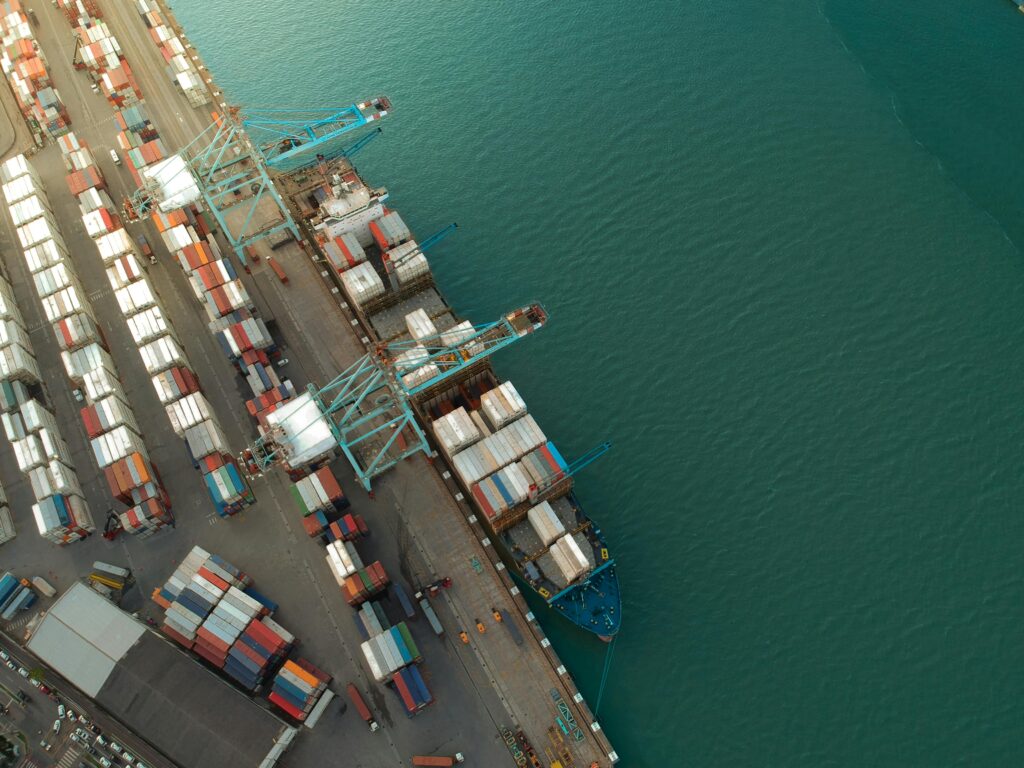What Exactly Is Intermodal Freight And How Does It Optimise Supply Chain Operations?
Explore the seamless integration of different transportation modes with intermodal freight, revolutionising supply chain efficiency.
The concept of intermodal freight has emerged as a game-changer, revolutionising supply chain operations across the United Kingdom. By seamlessly integrating multiple modes of transportation, intermodal freight offers a streamlined and optimised approach to moving goods, delivering unparalleled efficiency, cost-effectiveness, and environmental sustainability.

The Essence of Intermodal Freight
Intermodal freight is a sophisticated logistics strategy that involves the transportation of cargo using two or more modes of transport, such as road, rail, air, and maritime. At its core, this approach aims to leverage the strengths of each mode, creating a cohesive and efficient supply chain network.
By combining different modes of transport, intermodal freight allows for the strategic movement of goods across long distances, reducing the reliance on a single mode and minimising potential bottlenecks or disruptions. This flexibility ensures that cargo can be transported in a timely and cost-effective manner, adapting to fluctuating demand and evolving market conditions.
Seamless Connectivity and Intermodal Hubs
A critical component of intermodal freight operations is the establishment of intermodal hubs or terminals. These strategically located facilities serve as interconnection points, enabling the seamless transfer of cargo between different modes of transportation.
Intermodal hubs are designed to facilitate the efficient handling and consolidation of shipments, minimising the time and resources required for cargo transfers. Advanced handling equipment, specialised infrastructure, and streamlined processes ensure that goods can be quickly and securely transitioned from one mode to another, reducing potential delays and minimising the risk of damage.
Optimising Transportation Routes
One of the key advantages of intermodal freight is the ability to optimise transportation routes by leveraging the strengths of different modes. For instance, long-haul shipments can be transported via rail or maritime modes, which offer cost-effective and environmentally friendly options for moving large volumes of cargo over vast distances.
Once the shipment reaches its destination region, it can be transferred to road transportation for the final leg of the journey, capitalising on the flexibility and agility of trucking to facilitate last-mile deliveries. This strategic combination of modes ensures that goods are transported most efficiently and cost-effectively, reducing overall transportation costs and minimising environmental impact.
Increased Visibility and Tracking Capabilities
Intermodal freight operations are underpinned by advanced tracking and visibility systems that provide real-time monitoring of cargo throughout the entire supply chain. By integrating technologies such as GPS, RFID, and IoT sensors, logistics providers can accurately track shipments across multiple modes of transportation, enabling proactive decision-making and timely adjustments in response to potential disruptions.
This enhanced visibility not only improves operational efficiency but also fosters greater transparency and accountability within the supply chain. Customers can access up-to-date information about the location and status of their shipments, facilitating better inventory management and enabling more accurate delivery estimates.
Reduced Environmental Impact
As the UK logistics and freight market places a greater emphasis on sustainability, intermodal freight emerges as a viable solution for reducing the environmental impact of transportation operations. By strategically combining different modes of transport, intermodal freight can minimise the reliance on road transportation, which is traditionally associated with higher emissions and congestion.
By leveraging rail and maritime modes for longer hauls, intermodal freight operations can significantly reduce carbon emissions and contribute to a more sustainable supply chain. Additionally, the consolidation of shipments and optimised routing can further minimise fuel consumption and the overall carbon footprint of freight transportation.
Scalability and Adaptability
The inherent flexibility of intermodal freight operations allows logistics providers to adapt seamlessly to fluctuating demand patterns and market dynamics. As businesses expand or contract their operations, intermodal freight solutions can be scaled up or down accordingly, ensuring that transportation capacity aligns with evolving needs.
This scalability is particularly valuable in industries with seasonal or cyclical demand patterns, enabling a logistic company to efficiently manage peaks and troughs in cargo volumes without compromising service levels or incurring excessive costs.
Regulatory Compliance and Risk Mitigation
The intermodal freight industry is subject to a complex web of regulations and compliance requirements, spanning various modes of transportation and jurisdictions. Specialised intermodal freight providers possess in-depth knowledge and expertise in navigating these regulatory landscapes, ensuring adherence to all applicable laws, customs regulations, and safety standards.
By partnering with experienced intermodal freight operators, businesses can mitigate the risks associated with non-compliance, minimise potential disruptions, and safeguard their supply chain operations from legal and financial liabilities.
Conclusion
In the UK logistics and freight market, intermodal freight has emerged as a powerful solution for optimising supply chain operations. By seamlessly integrating multiple modes of transportation, this approach unlocks unparalleled efficiency, cost-effectiveness, and environmental sustainability.
From seamless connectivity and optimised transportation routes to increased visibility and reduced environmental impact, intermodal freight offers a comprehensive suite of benefits that transcend traditional logistics paradigms. As businesses strive to remain competitive and responsive to customer demands, embracing intermodal freight strategies will become increasingly essential.
As the UK logistics and freight industry continues to prioritise sustainability, efficiency, and customer satisfaction, intermodal freight stands as a beacon of innovation, driving the transformation of supply chain operations and positioning the UK as a leader in modern, integrated logistics solutions.
Contact Us
We are here when you need us. Get in contact to see what we can do for you
Contact Us